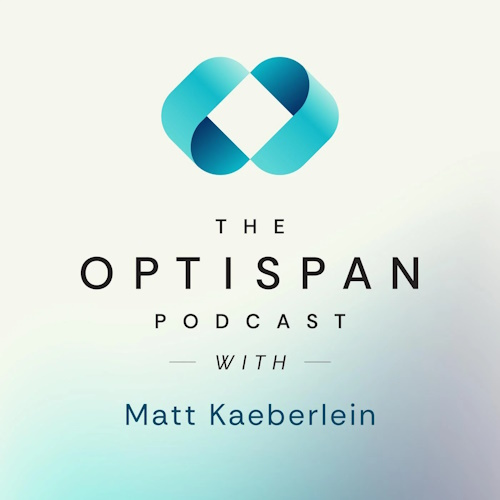Why 400+ Alzheimer’s Drugs Failed (Here’s What Works)
Optispan podcast episode - Dr. Cory introduces a new perspective on understanding Alzheimer’s disease
In this episode of Optispan, Dr. Cory unpacks why over 400 drug trials for Alzheimer’s disease have failed and introduces a new systems-based way of understanding and treating the disease. Instead of targeting single molecular pathways, Dr. Cory explains why a broader, metabolic and lifestyle-focused approach may finally offer real progress in prevention and treatment.
Key Points:
Dr. Cory reframes Alzheimer’s as a metabolic and systemic condition rather than a single-cause disease. He explains why decades of drug development failed and highlights lifestyle-based and personalized strategies showing new promise. The conversation offers hope that integrated, preventive care could finally change the course of Alzheimer’s.
- Beyond the Amyloid Hypothesis – Dr. Cory argues that decades of research narrowly targeting amyloid plaques have overlooked the complex, multifactorial nature of Alzheimer’s.
- A Metabolic Disease Model – Alzheimer’s may be better understood as a metabolic disorder of the brain, often linked to insulin resistance, inflammation, and mitochondrial dysfunction.
- Why 400+ Drugs Failed – Most past therapies targeted downstream symptoms rather than upstream causes like cellular energy failure, oxidative stress, or loss of synaptic plasticity.
- Systems Biology Approach – Dr. Cory emphasizes viewing the brain as an integrated system, where nutrient signaling, hormone balance, and detoxification pathways all play critical roles in cognitive health.
- Lifestyle and Nutrition Matter – Evidence now supports personalized interventions including improved diet, sleep, exercise, and stress management to support neuronal repair and slow decline.
- Early Detection is Crucial – Alzheimer’s pathology begins decades before symptoms. Screening for biomarkers and metabolic dysfunction in midlife could help delay or prevent disease onset.
- Precision Medicine in Alzheimer’s – Emerging approaches use individual genomic and metabolic data to tailor interventions rather than relying on one-size-fits-all drugs.
- Hope for the Future – While a single “cure” remains elusive, combining metabolic therapies, personalized nutrition, and digital cognitive monitoring could finally make Alzheimer’s a manageable condition.
Visit website: https://www.youtube.com/watch?v=6YppNhGWgBA
See alsoDetails last updated 09-Oct-2025




